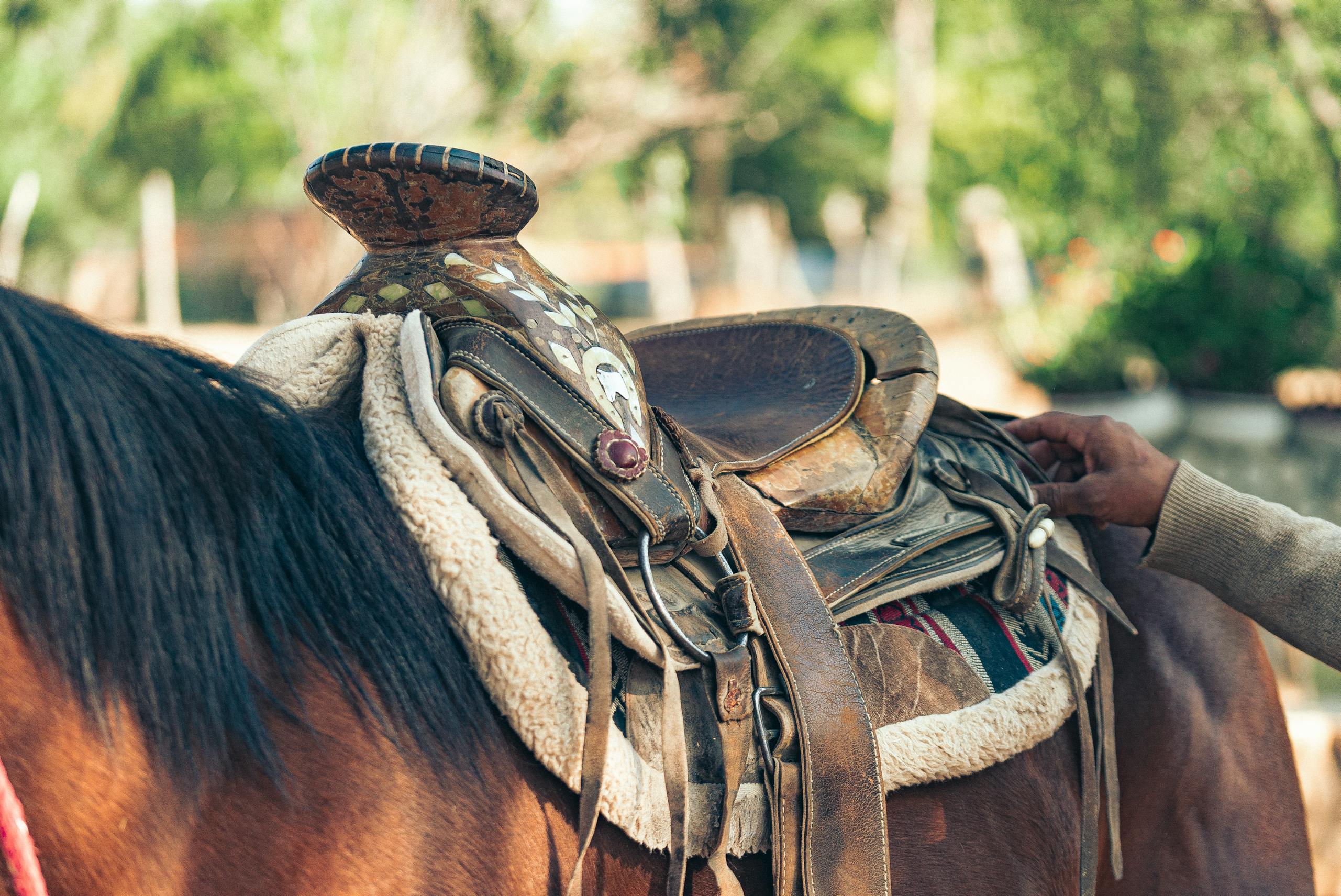
Though games such as the Tales of the Valiant roleplaying game or D&D typically live in the genre of high fantasy, this is not hard-coded into the game.
Want to play in a Wild-West-themed campaign, but can’t figure out how to make a sorcerer fit? Or a monk? Here are some suggestions on how to take the core pieces of each class in the Tales of the Valiant game (or any 5E game) and apply them to a western setting.
Belly up to the bar and read all the Ye Olde West articles in the archive!
Barbarian
Barbarians are often defined by the shape their Rage takes. In the Wild West, a barbarian’s rage can appear as a focused grit and determination, a zealous adherence to a personal code, or a profound vengeance and need for justice. The Danger Sense feature could also represent a gunslinger’s incredible trigger finger and reflexes.
Popular Wild West characters like DC Comics’s Jonah Hex or Cogburn of True Grit fame make great barbarians, displaying tenacity and deadly strength in a fight.
Bard
Being jacks-of-all-trades, Bards have an easy time finding a place in many genres because their identity is widely applicable. In the Wild West, you can find bards serving as performers in entertainment parlors or even as wandering vagrants telling ghost stories by the campfire out in the frontier. Their Bardic Inspiration may take the form of tall tales or haunting ballads. Who else but bards can spin yarns like Marty Robbins “Big Iron” or Johnny Cash’s “(Ghost) Riders in the Sky”?
Cleric
Clerics in the Wild West can take on the position of town priests. These priests tend to have small, close-knit congregations based on the population of their frontier town. Their Channel Divinity feature can be a reflection of not only their faith in the divine, but the faith their townsfolk have in them. A western cleric’s miracles should be rooted in mundane belief, and the results of that faith are subtle and meaningful, not flashy.
Druid
More in tune with the “wild” side of the Wild West, druids of the frontier have many biomes from which to draw their inspiration: deserts, swamps, tundras, plains, and badlands are popular choices for the genre. Many cultures and tribes preferred to live in the wilderness instead of towns, using folk medicine and herbal cures to maintain the health of their people. Western druids can draw inspiration from these cultures, making their nature spells natural remedies harvested from the wilderness. Those that focus on the Wild Shape class feature can take inspiration from tribes and cultures that venerated beasts as spiritual guardians and the spirits of their ancestors.
Fighter
Fighters are right at home in the Wild West thanks to their mastery of armaments. A fighter that specializes in firearms can easily fill the role of a legendary gunfighter or desperado. A fighter’s Action Surge and Second Wind features are the edge they have over average gunslingers. Make your weapon of choice and your use of these features an extension of your fighter’s history and pistol dueling talent.
Mechanist
Mechanists, with their Shard of Creation and Augments, can be excellent peddlers of wares both exotic and dangerous. The Wild West had its fair share of salesmen trying to make a quick buck with snake oil and miracle cures. Your inventions however, are the real deal. If you’re not interested in the traveling salesman angle, you can easily make your mechanist the town gunsmith, providing firearms and other mechanical marvels to whichever side of the law pays the best.
Monk
An easy way to find a place in the Wild West for a monk is to find the places where hand-to-hand combat is expected and to build off of that. Perhaps the most iconic place brawls break out in the Wild West is the saloon with a good old fashioned bar fight. A monk’s techniques and unique combat style could be the result of their experience with improvised weaponry (such as chairs and bottles) and the close quarters of the saloon. Alternatively, a monk specializing in weapons could represent that through “trick” weaponry such as a lasso, knife, or whip.
Paladin
The defining feature of a paladin is their oath, which overlaps extremely well with the code a character in a western follows. Paladins in the Wild West may make an oath to the law, much like a sheriff, deputy, or other type of lawkeeper. A paladin may also make an oath to themself, like a lone wanderer or frontier myth. Paladins, more so than other classes, can embody living legends that campfire stories are told about.
Ranger
The untamed frontier makes an excellent home for rangers in the Wild West. Rangers can fill the archetype of hunters, prospectors, trappers, or anyone who survives off the land rather than in frontier towns thanks to their Explorer feature. An urban-focused ranger could serve as a seasoned bounty hunter with their Mystic Mark feature and tracking skills.
Rogue
Master swindlers and cheats, rogues can fill the role of the charming maverick, grifting from town to town. Many charismatic outlaws are rogues, and one reason they can evade the law is thanks to their Expertise feature. What your rogue is an expert in determines your scheme of choice and how you maintain your freedom. Bret Maverick of the western movie, Maverick, is an excellent example of a rogue with his tremendous luck and expertise in card games.
Sorcerer
Since sorcery is rooted in the innate magic of the wielder, western sorcerers are the embodiment of the “wild” west. Take inspiration in your sorcerer’s magic from tall tales of the American frontier, or create tall tales surrounding your sorcerer. For example, the real world tale of Pecos Bill riding a tornado could be a great sorcerous origin for him if he were a sorcerer of the storms. Your magic is impossible to explain, so you can bet that frontier folk who witness it will certainly twist it into something mythical.
Warlock
A warlock is as strong as the power their patron affords them, and the Wild West provides a colorful selection of patron ideas. Fiends can pose as nefarious land owners looking to muscle settlers into selling their homesteads. Celestials can disguise themselves as well-meaning pastors of the local congregation. Even more alien or bestial patrons may pose as spirits of the west, hiding out in the frontier waiting for a chosen pilgrim. A warlock can theme your pact and purpose around one of these western archetypes.
Wizard
Magic in the Wild West should be rough and tumble, much like the setting and people. As a result, western wizards are less austere and more practical with their talents. Your wizard could be a grizzled wandslinger, getting into magical duels at high noon. Perhaps your wizard is an explorer of the frontier, contacting isolated tribes in search of forgotten folk magic. The hunt for magical secrets can transform wizards from erudite scholars into arcane treasure hunters looking for magical fortunes buried somewhere out in the dust.
Read more at this site
